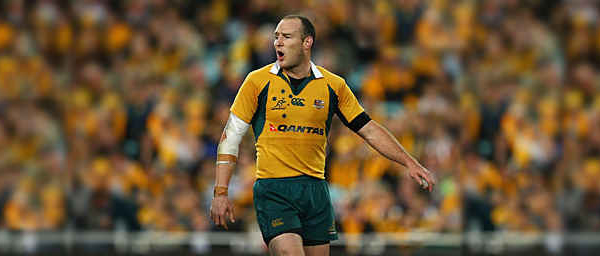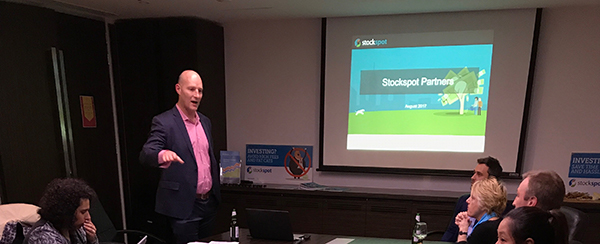Nobody can prepare you for becoming a professional athlete. Literally everything is put under a microscope from what goes into your body from a diet and hydration point of view to every single detail of the team’s and your own individual preparation each week.
The objective for everything that comes under this microscope is about constant improvement and how it ultimately benefits the team. This includes how you handle the media attention.
For many players one of the hardest skills to develop (and one of the most crucial) is effectively interacting with reporters and how you manage the constant commentary (both positive and negative) from the media.
My first encounter with the media
My first media experience was a joint press conference with different types of media and reporters present for an introduction to the 4 new Brumbies players in preseason 1998.
Unfortunately when my turn came to answer a question I didn’t hear the journalist say my name and wasn’t aware I’d been asked a question until the other guys on the panel all turned to look at me.
I was nervous and rather than simply pausing and asking the journalist to repeat the question, I dug myself a hole and said “yes I’m really excited to be here….. and can’t wait to show them my stuff…”. The rest of the panel started laughing. I’m still not sure what the question was but it was one hell of answer!
The point is that as a professional sportsperson every single day is about getting better at everything you do, including doing a huge amount of work to improve how you manage the media.
Fast forward to the back end of my career, as a captain I was out fronting the media several times a week with the purpose of articulating the focus of the team and potentially resolving issues the team was facing at the time. As a captain you’re acutely aware of the influence of the media as it is such a powerful tool that can be used for or against your success.
Ignoring outside commentary
Back when I was playing, my parents would often read an article and call asking “what’s going on”. My opinion was generally if anything was in the press it was:
1) only a slight reflection of what’s really going on;
2) inaccurate old news; or
3) on the rare occasion they’d nailed it.
No matter how many times I told my parents that just because it’s in the press doesn’t mean it’s a true reflection of what is really going on. They would just assume it was gospel.
There are many things you can’t control – including the media, so players need to have processes for how to manage that internally and not take it to heart. A large reason for this is you don’t want to believe or get caught up in it when all the press is positive – it’s not healthy and more importantly there will be times when the press will be negative.
Most of the great rugby players I met paid little attention to what was written about them. Instead they turned to coaching staff, team mates and personal support networks for validation and understanding.
You quickly realise that everyone has an opinion on everything. The rule you need to learn to apply is whose opinion do you value the most and is it critical to your objectives. Blocking out the opinions that don’t help, setting the right foundations and sticking to a long term plan is critically important.
In the lead up to the 2003 World Cup I was injured at the time the Wallabies played the All Blacks who scored over 50 points against us at Stadium Australia – the same venue where we would potentially play them in a few months at the World Cup.

At that time I was rehabilitating my shoulder and as the World Cup got closer there were a number of journalists trying to put my name forward as the ‘saviour’. I recall 60 Minutes doing a piece on the home World Cup and the immense pressure on the team. I was interviewed and asked the question “how do you deal with that pressure?”.
To me the answer was simple: “I have personal goals and objectives that I want to achieve and there are team goals and objectives. The pressure that we put on ourselves internally is as high or higher than anything external and that is my main focus”.
If I hadn’t learnt how to block out ‘the pressure’ the media create very early in my career there’s no doubt in my mind I would have struggled a lot. But it didn’t phase me too much because I’d learnt to ignore it or block it out. You only want to focus time and emotional energy on things that impact improved performance.
Granted, nowadays it’s much harder for young players to do that as the news cycle is much shorter and they interact on social media platforms. It’s harder for athletes to segment or compartmentalise the social media platforms as they are constantly interacting on them.
However from my perspective the overarching principle remains the same. Social media is still a form of media. So good, bad or indifferent – often what is said in the media is out of your control.
Everyone knows about money
I believe money management is similar. There’s so much written on wealth, how to invest, magic finance bullets, get rich quick schemes – it’s hard to decipher what is useful, what isn’t and what is credible.
A lot of commentary on markets and share prices is not a true reflection of what is really happening. Everyone wants a simple reason to why a stock or a market went up or down. The answer is rarely so simple or straight forward and sometimes there’s just no reason at all.
To me, this reiterates the importance on getting the foundations of investments right. Not over complicating things, having a solid long-term plan and having the resolve to execute it and stick to it.

With success in sport it’s usually the result of a clear long term plan and everyone executing to their best of ability. When you accept this as a player it creates more self-belief and confidence in what you’re doing and makes it easier to block out external noise which isn’t useful to your team’s objectives.
Investors who do well usually have a similar thought process. Set a long term plan, focus on the process and don’t put too much emphasis on short term results and things you can’t control.
Find out how Stockspot makes it easy to grow your wealth and invest in your future.




